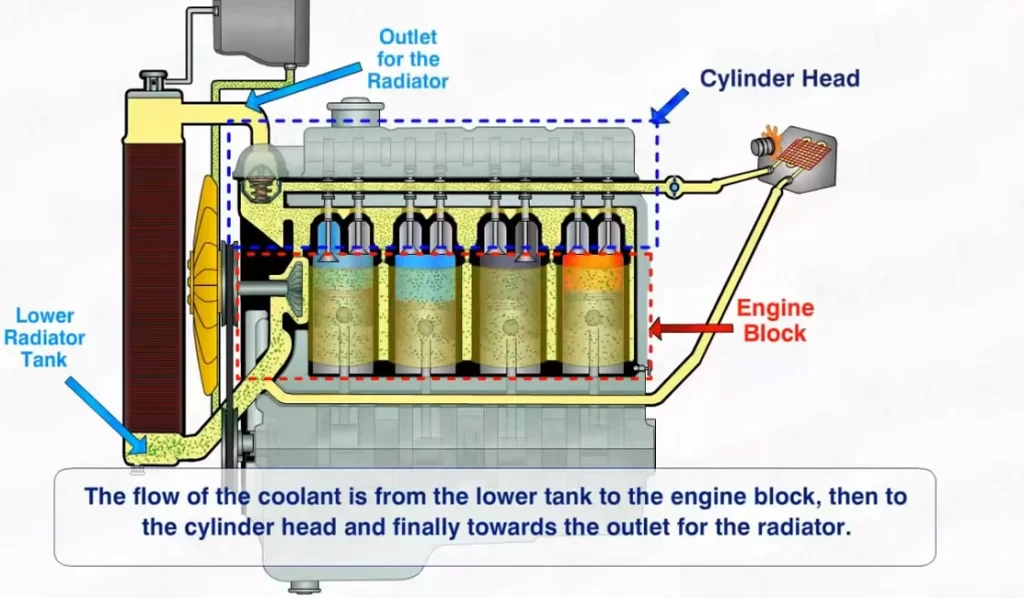AC light flickering is a typical symptom that can signal underlying issues with the air conditioning machine. When the AC light blinks, it is usually a warning sign that something is wrong and has to be fixed. In this post, we will look at the numerous causes of AC light blinking, present troubleshooting strategies to remedy the problem, and discuss when to seek professional help. By understanding these factors, you can assure the proper operation of your air conditioning system and maintain a comfortable indoor environment.
AC units are essential for regulating indoor temperature, particularly in hot weather. If the AC light is blinking, it indicates a problem with the system that requires immediate attention. Failure to address this warning may result in additional harm and potentially expensive fixes.
Causes of AC Light Blinking
There are multiple potential causes for the AC light to blink. It’s crucial to comprehend these causes to troubleshoot effectively. These are some typical causes:
Insufficient Power Supply
Insufficient power supply to the AC unit may cause the AC light to flash. Possible causes of AC system power supply disruption include power fluctuations, overloaded circuits, or electrical problems in the main power source.

Faulty Wiring or Loose Connections
Blinking lights on the air conditioner may be caused by faulty wiring installation or damage that hinders the electrical flow. Intermittent power interruptions may be caused by loose connections or frayed wires, resulting in the blinking of the AC light.
Issues with the Thermostat
If the thermostat is malfunctioning, it can cause issues with the AC unit’s performance. Possible causes for the AC light blinking include imprecise temperature measurements, defective sensors, or issues with the wiring.
Problems with the AC Compressor or Fan
In the event of motor failure or obstructions, such as those encountered by the AC compressor or fan, the AC light may blink. The proper functioning of the unit relies heavily on these components as they play a crucial role in air cooling. Any malfunction in these components can cause disruption in the overall operation of the unit.
Malfunctioning Capacitor or Relay Switch
In an air conditioning system, capacitors and relay switches play a crucial role. If the AC light is blinking, it could be due to a defective capacitor or relay switch. These components should be checked for any issues.
Low Refrigerant Levels
Low refrigerant levels may impact the AC unit’s cooling performance. The blinking of the AC light may be caused by a low refrigerant level or a malfunction in the refrigerant system, which requires refilling or repair.
Overheating of the AC Unit
If the AC unit overheats, it can cause various problems, such as the blinking of the AC light. Possible mechanic’s rewrite: If your engine is overheating, it could be due to clogged filters, obstructed air ducts, or a faulty condenser.
Short cycling is a serious problem with air conditioning that occurs when the compressor clutch constantly turns on and off. Short cycling [AC Clutch Engages intermittently] can be caused by a variety of factors, including – itismycar.com
Troubleshooting AC Light Blinking
In the event of an AC light blinking, it is imperative to adhere to particular diagnostic procedures to determine and rectify the problem. Here’s a breakdown of the process to assist you:
Step 1: Checking the Power Supply
Verify that the power supply to the air conditioning unit is sufficient. Inspect the circuit breaker or fuse box for any tripped breakers or blown fuses. If needed, perform a reset or replacement of the affected components. Also, make sure to verify that the AC unit’s power switch has been activated.
Step 2: Inspecting the Wiring and Connections
Perform a comprehensive inspection of the electrical wiring and connections of the air conditioning unit. Inspect for any loose or damaged wires and secure any connections that seem loose. In case of any indications of wire damage, it is advisable to seek the assistance of a skilled electrician to resolve the problem.
Step 3: Testing the Thermostat
Perform a functionality check on the thermostat. Make sure that the temperature and mode are set to the desired settings. In case of a battery-operated thermostat, replace the batteries if necessary. In case of a suspected faulty thermostat, it is recommended to seek the assistance of a certified HVAC technician for a thorough assessment.
Step 4: Assessing the AC Compressor and Fan
Examine the AC compressor and fan for any visible evidence of damage or obstructions. Clean the fan blades and remove any debris that could interfere with the smooth operation of these components. Seek professional help if you detect any unexpected noises or suspect a problem.
Step 5: Examining the Capacitor and Relay Switch
It is recommended that you have a certified HVAC mechanic examine the capacitor and relay switch of your AC unit. We can conduct the necessary tests and replace the components if deemed necessary.
Step 6: Checking Refrigerant Levels
Insufficient refrigerant levels may cause the AC indicator light to flash. Please seek the assistance of a certified HVAC technician to evaluate the refrigerant levels and identify any leaks or other problems that require attention. We can perform a refill or repair on the refrigerant system as required.
Step 7: Preventing Overheating of the AC Unit
Performing routine maintenance is essential to avoid the air conditioning unit from overheating. Regularly clean or replace filters, make sure there is proper ventilation around the outdoor unit, and schedule annual maintenance visits with professional HVAC technicians.

Professional Assistance
Although performing troubleshooting steps can aid in resolving some AC light blinking issues, certain scenarios necessitate the expertise of a professional. If you’re unable to diagnose the issue or fix it yourself, it’s recommended to consult with a licensed HVAC mechanic. We possess the necessary skills and equipment to identify and fix intricate problems, guaranteeing the sustained effectiveness of your AC unit.
When hiring a professional, consider the following tips:
- Seek recommendations from friends, family, or neighbors who have recently used HVAC services.
- Research local HVAC companies and read reviews to determine their reputation and reliability.
- Verify that the technicians are licensed, insured, and certified to perform HVAC repairs.
- Request estimates from multiple service providers and compare their prices and service offerings.
- Inquire about warranties and guarantees provided by the HVAC company.
Conclusion
If the AC light is blinking, it is a warning sign that should not be ignored. By diagnosing the potential causes and following the prescribed steps for troubleshooting, you can proficiently resolve the problem and guarantee the peak functioning of your AC system. Performing routine maintenance, promptly addressing any necessary repairs, and seeking expert help as needed are crucial for ensuring optimal performance of your air conditioning system and maintaining a pleasant indoor atmosphere.
FAQs
Why is the AC light blinking?
Possible reasons for the AC light blinking include inadequate power supply, wiring issues, thermostat problems, compressor or fan malfunctions, faulty capacitor or relay switch, low refrigerant levels, or AC unit overheating.
How can I troubleshoot AC light blinking?
As a mechanic, the steps to troubleshoot your AC unit include: verifying the power supply, inspecting the wiring and connections, testing the thermostat, assessing the compressor and fan, examining the capacitor and relay switch, checking refrigerant levels, and preventing the AC unit from overheating.
When should I seek professional assistance for AC light blinking?
If you are unable to identify the cause or resolve the issue on your own, it is advisable to contact a certified HVAC technician for professional assistance.
Why is regular maintenance important for AC systems?
Regular maintenance helps prevent issues like AC light blinking by keeping the unit clean, identifying and addressing problems early on, and ensuring the efficient functioning of the air conditioning system.
How do I find a reliable AC repair service?
When selecting an AC repair service, it is recommended that you seek recommendations, conduct research on local HVAC companies, verify licenses and certifications, compare prices and service offerings, and inquire about warranties and guarantees.
